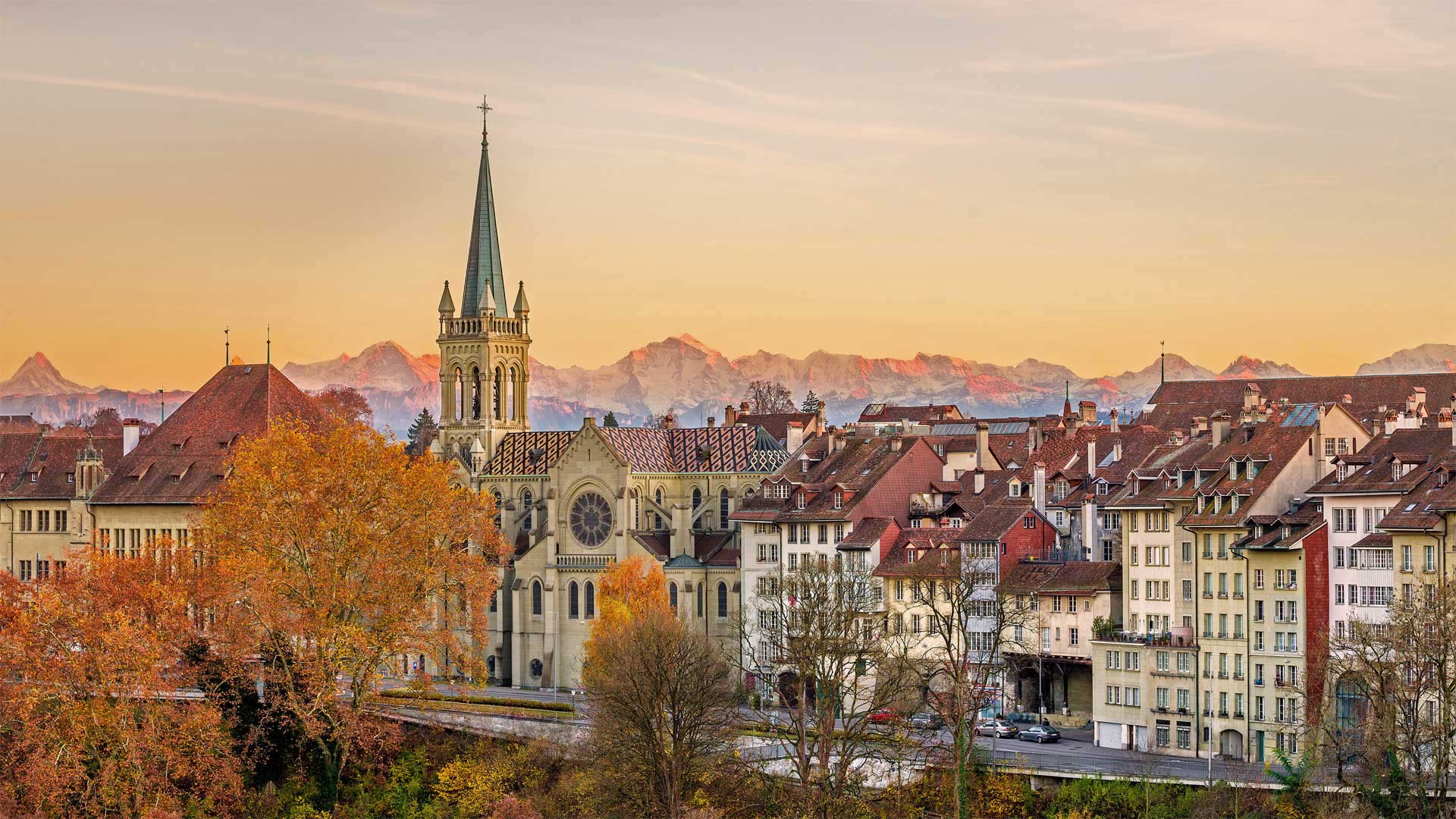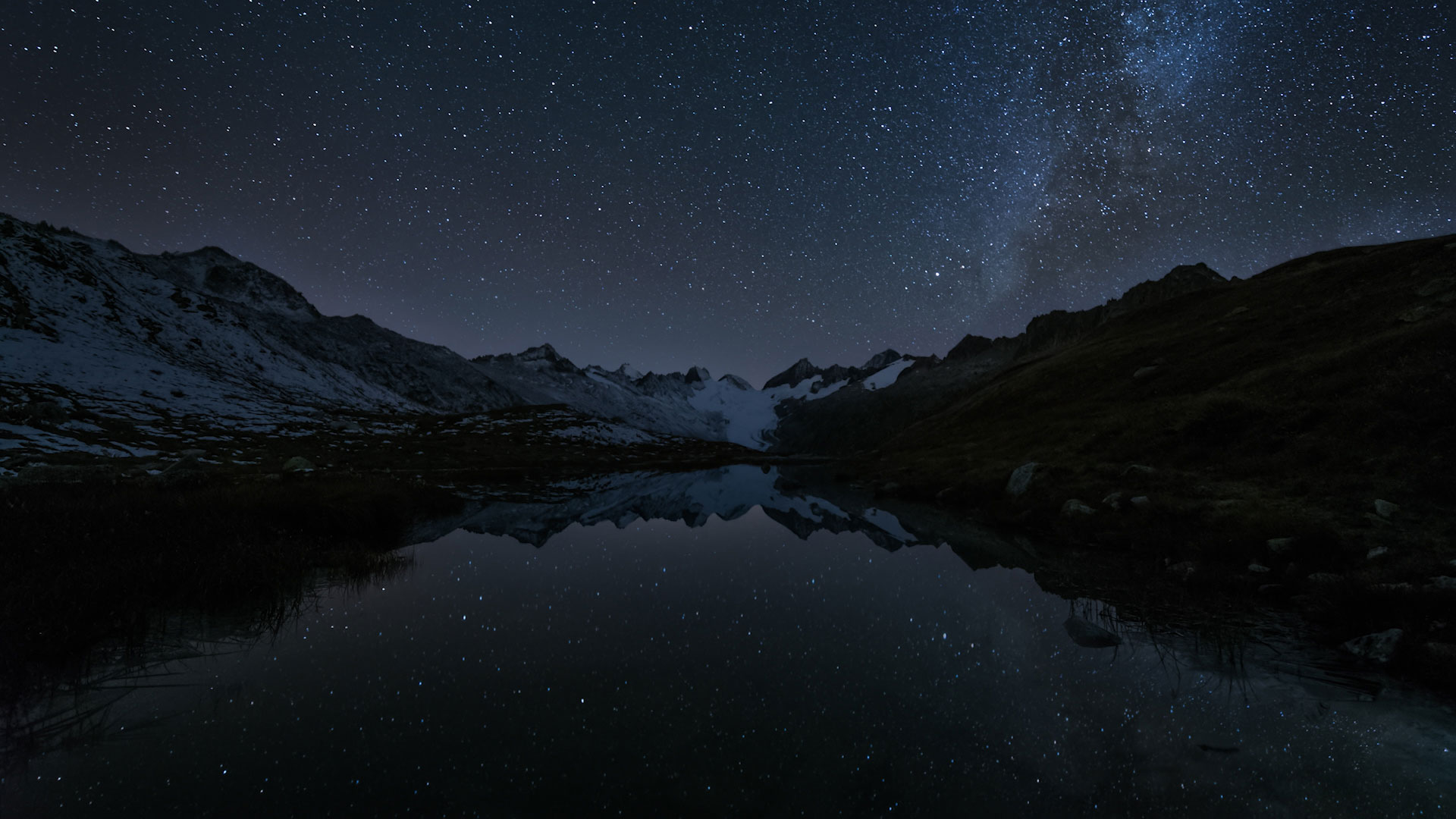伯尔尼老城,瑞士 Old Town of Bern, Switzerland (© Simon Zenger/Alamy)

伯尔尼老城,瑞士 Old Town of Bern, Switzerland (© Simon Zenger/Alamy)
Autumn comes to Old Town
The medieval center of Bern, Switzerland's capital, looks much as it did when most of these buildings were first constructed between the 12th and the 15th centuries. What's now called Old Town was founded in 1191 on a long, narrow peninsula surrounded on three sides by the Aare River. As Bern grew over the centuries, it erected defensive walls and moats only to tear them down again with each successive wave of expansion. In their place are now broad public spaces for outdoor cafes and markets, like the Zibelemärit (Onion Market), an annual fall tradition.
Since at least the 1850s—and possibly much longer ago—the people of Bern have awakened very early on the fourth Monday of November to greet farmers who come to the city offering huge, beautiful garlands of onions and garlic for sale. This year, the coronavirus pandemic has put a stop to the public festival, but we're quite sure that on the streets of Bern's Old Town, the aroma of onion tarts and Glühwein is wafting out onto the streets from these perfectly preserved medieval houses.
格里姆瑟尔山口Totesee山地湖中倒映出的星星,瑞士伯尔尼 Stars reflecting in Totensee, a mountain lake at Grimsel Pass, Kanton Bern, Switzerland (© magodevita/Getty Images)

格里姆瑟尔山口Totesee山地湖中倒映出的星星,瑞士伯尔尼 Stars reflecting in Totensee, a mountain lake at Grimsel Pass, Kanton Bern, Switzerland (© magodevita/Getty Images)
Reflections of the night sky
We're featuring this video of the whirling Milky Way over the Totensee, a small natural lake in Switzerland, to remind you that August is a fantastic time for stargazing. In the Northern Hemisphere, the nights are still long and remain warm, so if you're lucky you can catch the always thrilling sight of a falling star. Tonight would be a good night to look for one because we're at the tail end of the annual Perseid meteor shower. Like most predictable meteor showers, it occurs when the Earth's orbit intersects with the long elliptical path of one of the millions of comets that orbit the Sun. It is called the Perseid meteor shower because the bulk of the meteors will appear to originate out of the constellation Perseus. So, turn out the lights, head outside, and look up!